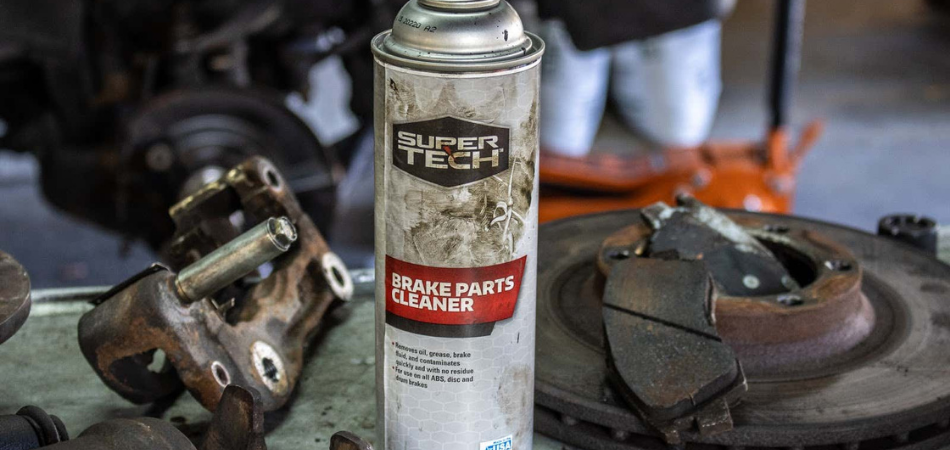Cleaning your car’s brake system and discs is critical to their health and safety. While getting rid of rust on brake rotors and other parts is a major concern for most car owners, there are ways you can get rid of rust easily. With several means of doing this, does brake cleaner remove rust?
Yes, brake cleaner removes rust, especially from rotors. To prevent any spills on the floor, put a tray below the metal surface and spray the surface with some brake cleaner. You can apply more brake cleaner if rust remains and brush the metal surface with a steel sponge or brush. Wipe off the surface and finish with a little more cleanser to leave your job neat.
Brake cleaners can also be used on brake linings, drums, pads, brake shoes, caliper units, and other areas of the braking mechanism while they are still intact. It is important to touch the rusty areas of the metal while applying the brake cleanser.
This article will help you in a great way by pointing out the applications of brake cleaners and their effect on rust. We will also help you know the pros and cons of brake cleaners and their effect on vehicle tires.
Contents
What Is The Major Purpose Of A Brake Cleaner?
The major purpose of a brake cleaner is for the degreasing as cleaning of metallic surfaces or metal parts. Break cleaners are also applied to remove resins, dust, tar, fats, and oils that have been deposited on vehicles.
A brake cleaner is also known as parts cleaner. It is a cleaning agent that’s tailored for brake discs, underfloor of motors, and engine compartment of motor vehicles.
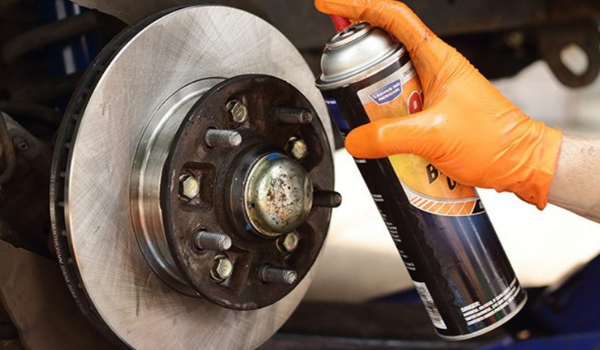
How To Apply Brake Cleaner For Rust Removal.
Break cleaners often come in spray bottles. This makes their application easy and more effective. To apply brake cleaners for rust removal,
- First, clean the brakes properly with a steel wool or wire brush.
- Put a tray down, this will help to catch the runoff. Then spray the rotor with the brake cleaner.
- Allow it to dry, and then wipe with a clean rag. Ensure that there is no oil on the rag.
- If the rust remains, apply more break cleaners and beuh off the surface with a wire brush or steel wool.
What Are The Benefits Of Using A Brake Cleaner?
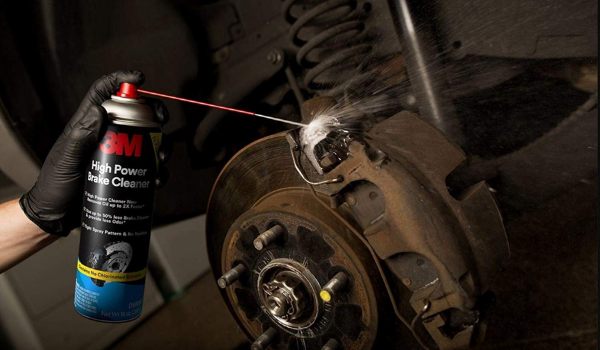
- Brake cleaner has lots of benefits. Dirty brakes are usually clogged with residue, dust, and grease that cause brake pads to not grip the brake discs properly as they should.
- Break Cleaners not only get rid of these, but they also have other amazing benefits. Let’s take a look at a few of them.
- Break cleaners are easy to apply, they are also energy-conserving and time-effective.
- Minimal preparation is required before the application of brake cleaners. As a result, it does not require much manpower.
- The application of brake cleaners improves the overall function and performance of brakes.
- When brake cleaners are applied from time to time, the life of brake pads and brake discs are prolonged.
- Brake cleaners rapidly get rid of oil, brake fluid, grease, and grime that form as a result of friction components.
- Brake squeals are reduced and effectively treated.
- Brake cleaners serve as a rehydrating formula that helps in the preservation of braking components.
- Leaking vacuum hoses on petrol engines that prevent vehicles from functioning properly are easily discovered with the application of brake cleaners.
- Apart from brakes, other metallic parts of a vehicle can be cleaned thoroughly with the use of a brake cleaner.
- Brake cleaners are wonderful engine degreasers and oil stain removals.
- Brake cleaners can also be used in home applications such as concrete cleaners, stubborn surface cleaners, and other dirty floor stains.
Disadvantages Of Brake Cleaners
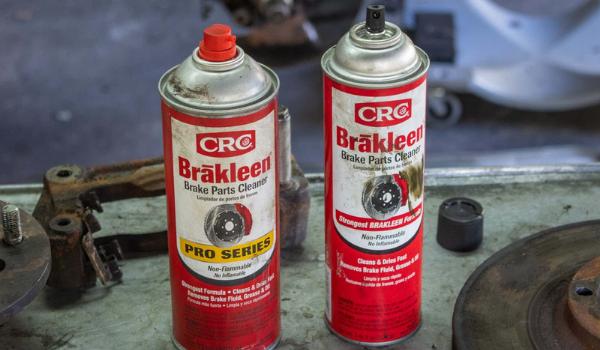
- Break cleaners also have their disadvantages. Here are a few of them listed below;
- They contain toxic compounds and therefore cannot be used in indoor areas or areas with inadequate air.
- Some brake cleaners are highly flammable and so can only be stored under certain temperatures.
- Exposing your skin to brake cleaners can lead to irritation and sometimes even injury.
- Chlorinated brake cleaners usually react with high temperatures or strong ultraviolet light which can cause choking or asphyxiation.
- Some types of plastics or rubber materials can be decomposed by brake cleaners by removing their binding components. The effect is that these materials appear to be unaffected at first but they suddenly become brittle and begin to fracture after a few weeks.
Can Break Cleaners Damage My Tyres?
Break cleaners might damage your tires. Most of the instructions available on the aerosol can of brake cleaners often tell you to avoid spraying the brake cleaner in rubber. This is because the rubbers contain wax Protestants that prevent damage from ozone and tyres are made from rubbers.
Although a brake cleaner might not directly affect the rubber, it will, however, remove the wax and will eventually damage the rubber indirectly by peeling off the Protestants on the wax surface.
Is WD-40 A Suitable Brake Cleaner?
Yes, it is. WD-40 is a specialist brake cleaner and rust remover that quickly dissolves rust and restores equipment, metal tools, and surfaces to bare metal without scraping, scrubbing, or chipping.
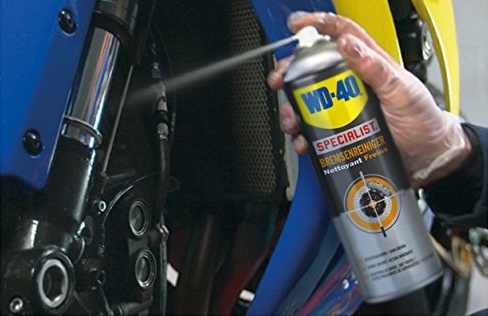
To get rid of heavy rust, leave the heavy parts of the rusted metal in the rust removal solution overnight and then scrape off the already soaked metal with a steel sponge the following morning.
Does Brake Fluid Prevent Rust?
Yes, brake fluid prevents rust. This is because it contains some anti-corrosive adhesive chemicals. Nonetheless, when its additive component which is a make-up of the brake fluid breaks down or depletes, the anti-corrosive inhibitors that are present in the brake fluid becomes inadequate. As a result of this, the hydraulic components of the internal brake might begin to rust.
This means that brake fluid might prevent rust in metals, but only to a certain extent.

